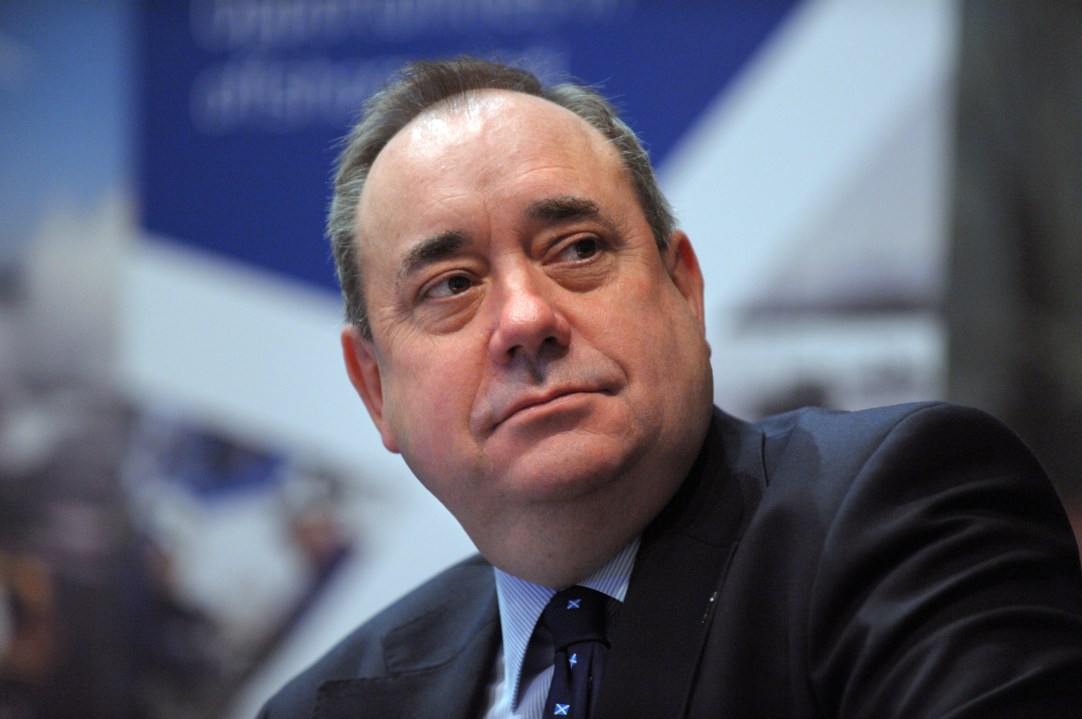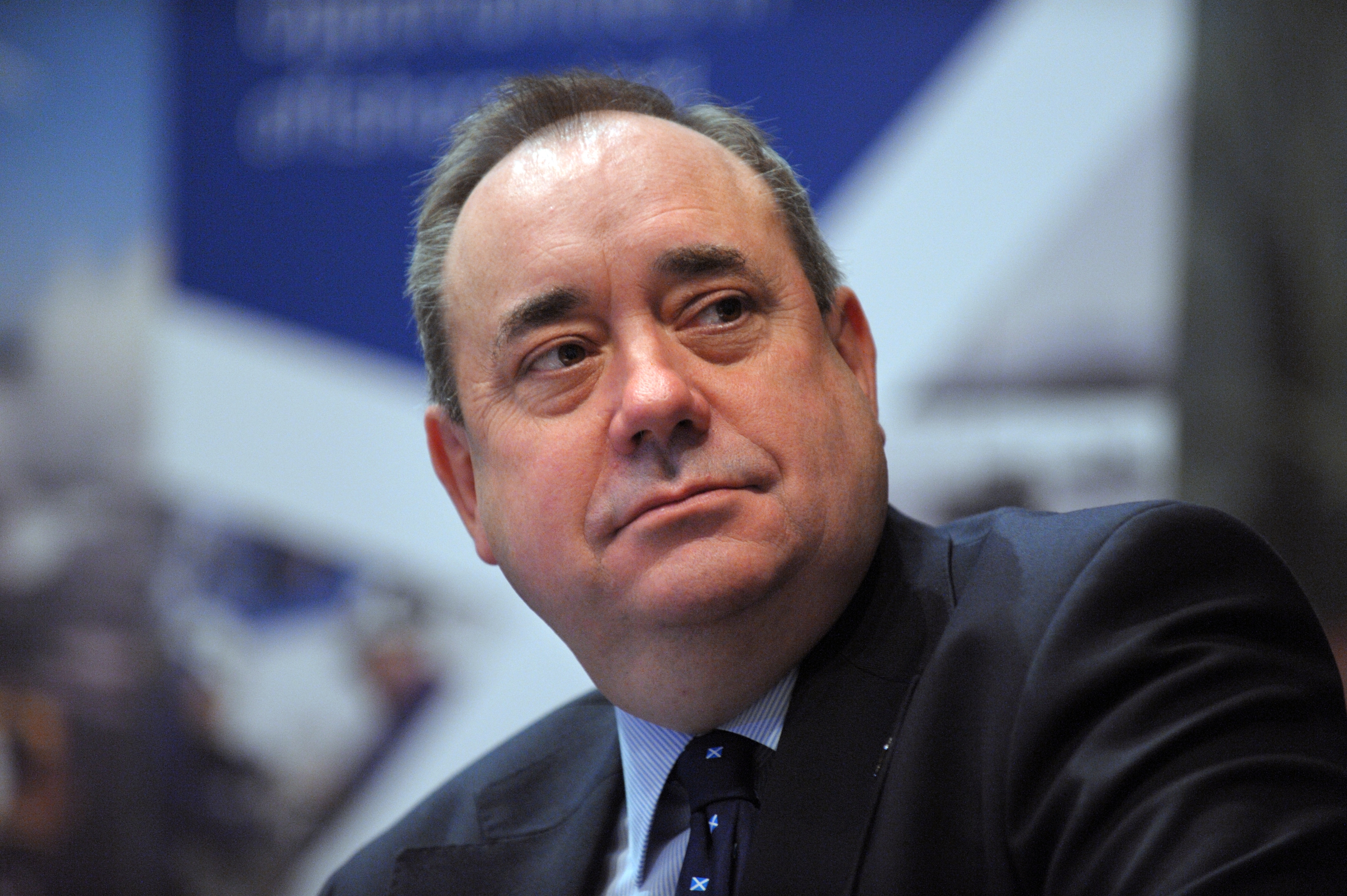So we have a question and it is a simple one. Should Scotland be an independent country? There, that wasn’t so difficult was it? It is, after all, the nub of the matter.
Granted, one might agree that Scotland should be an independent country but still conclude that being so is a different matter. That might be a metaphysical matter beyond the Electoral Commission’s ken.
Nevertheless, it is not an unreasonable question. Some reports seemed keen to spin this as some kind of ‘setback’ for Alex Salmond. Apparently dropping the preamble ‘Do you agree’ – included in the SNP’s favoured wording – is yet another indication the nationalists are on the ropes. This is unpersuasive guff.
So too, frankly, is Damian Thompson’s suggestion that this modestly-amended question is hopelessly biased in favour of the nationalist agenda. I would suggest that if Mr Salmond’s critics cannot agree whether this is a triumph for the ‘wily’ First Minister or, instead, a fresh humiliation then the chances are that it is neither.
In any case, the question matters rather less than the answer. But the manner in which even relatively mundane issues may be interpreted as nationalist defeats is a reminder of the extent to which the nationalist cause lacks friends in the media. There is nothing objectionable about that. Equally, nationalist complaints that the press is incorrigibly biased against the Great Cause are not wholly groundless.
That’s something I pondered in this week’s Think Scotland column:
Generalisations are always tricky propositions liable to be undermined by specific examples that contradict the general premise. Nevertheless, some rules do usually apply. And sometimes these rules appear paradoxical. For instance: the media dislikes the status quo but is also opposed to change.
How can this be so? Easily. The press begins from the proposition that present arrangements – on whatever policy area you care to choose to use as an example – are thoroughly inadequate. Why, Minister, aren’t you doing something about this. Something must be done! There is, you see, a bias in favour of doing something and often it doesn’t much matter what that something might be or however well-considered it is.
That, however, is only the first part of the media-two-step. While it may be important that something be done it is equally important to point out that any particular or given notion is obviously inadequate to the challenge at hand. Worse, it may be a distraction. Or dangerous. Change – upon which we insisted before there was a proposal for actual change – is now risky and dangerous. The media thirsts for novelty but is actually institutionally afraid of new ideas. Independence is a new idea.
The media tends to approve of change as an abstract or general principle but is opposed to it as soon as it become specific or particular. This may be unfortunate but it is the way it is. Politicians tend to be quite chummy with journalists when in opposition. Once they are in government the relationship changes. Yesterday’s crusaders for truth become today’s implacable cynics. Or, as Tony Blair once described the Scottish press, a bunch of “unreconstructed wankers”.
Whole thing here.
Meanwhile, relatedly, allow me to commend David Torrance’s latest column at the same site. For reasons that are obvious, the SNP are keen to pretend that a Yes vote is the only way to achieve the much-vaunted, mysterious “more powers” Scotland wants. This is not the case, not least for the very good reason that even the Scottish Conservatives are inching away from last-ditch, paleo-Unionism. Indeed, one may make a credible argument that there are no Unionist parties in Scotland any longer. Rather, there are four nationalist parties and the difference between them is of degree as much as it is of kind. Like coffee beans, their nationalism is of different strengths but, in as much as each favours transferring additional powers to Holyrood, even the mildest of them could be considered a tiny-n nationalism.
Anyway, as David says, this puts the SNP in an awkward spot:
Sometimes a lot of SNP and “yes” campaign rhetoric seems to belong in the 1980s rather than 2013. The old rallying cry of “no mandate” still exists, albeit in modified form, while on twitter and elsewhere some Nationalists talk of an “over-centralised” UK state that simply doesn’t exist. Often, you’d be forgiven for thinking a Scottish Parliament hadn’t been established in 1999.
As for the prospects of greater devolution following a “no” vote in the referendum, again I think Sturgeon is overstating her point. Given that all three Unionist parties are now committed to legislating for more powers at some point after the referendum, and that those pledges are likely to be put to the electorate at the 2015 general election, it seems a bit far-fetched to believe that somehow all that will be forgotten about come October 2014.
If the three parties did that then, frankly, they’d get pulverized in the media and, with the SNP’s warnings vindicated, most likely punished at the polls too.
I think this correct. Which leads one to this observation: the SNP are likely to win even if they lose the referendum. A silver medal is no disgrace.








Comments